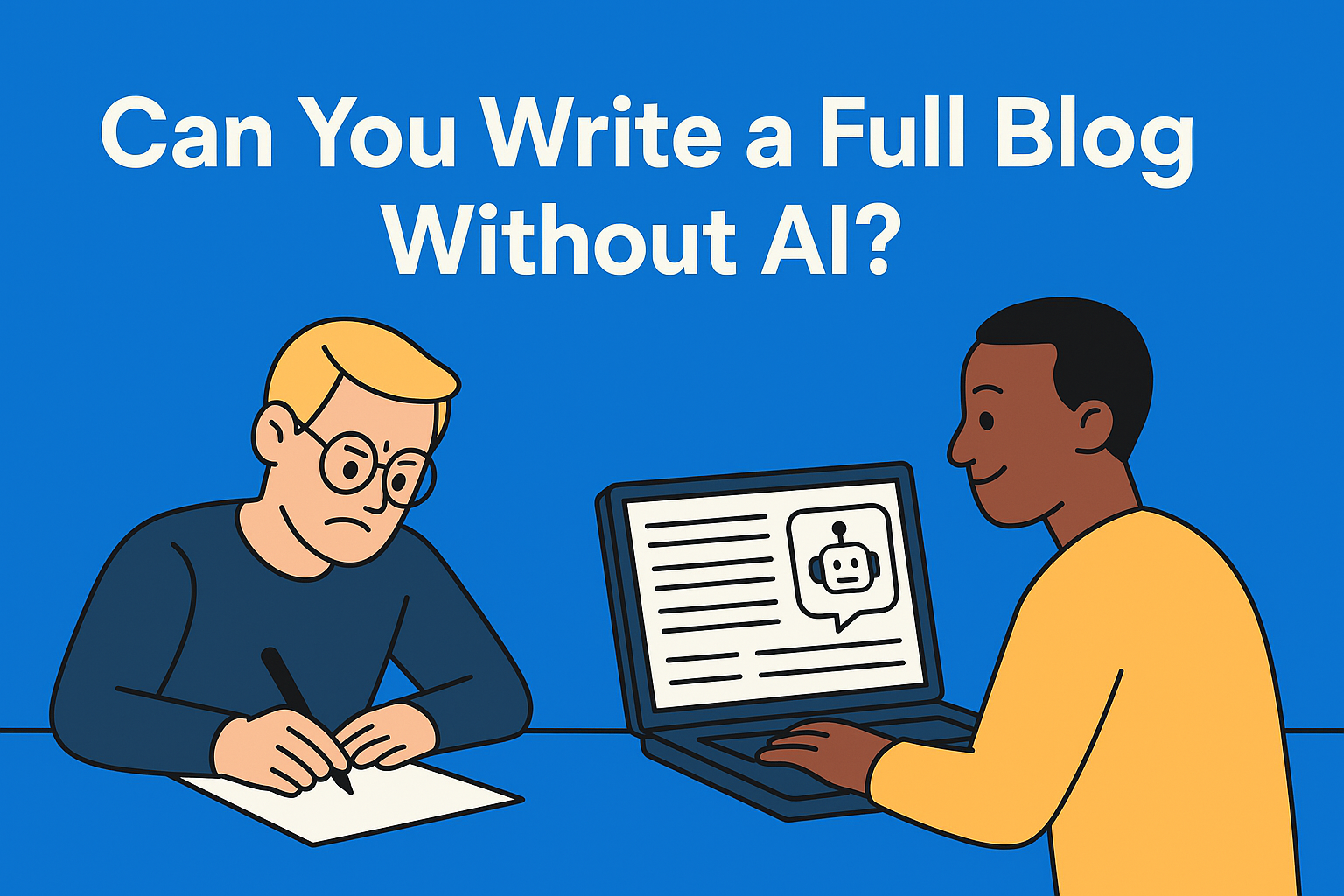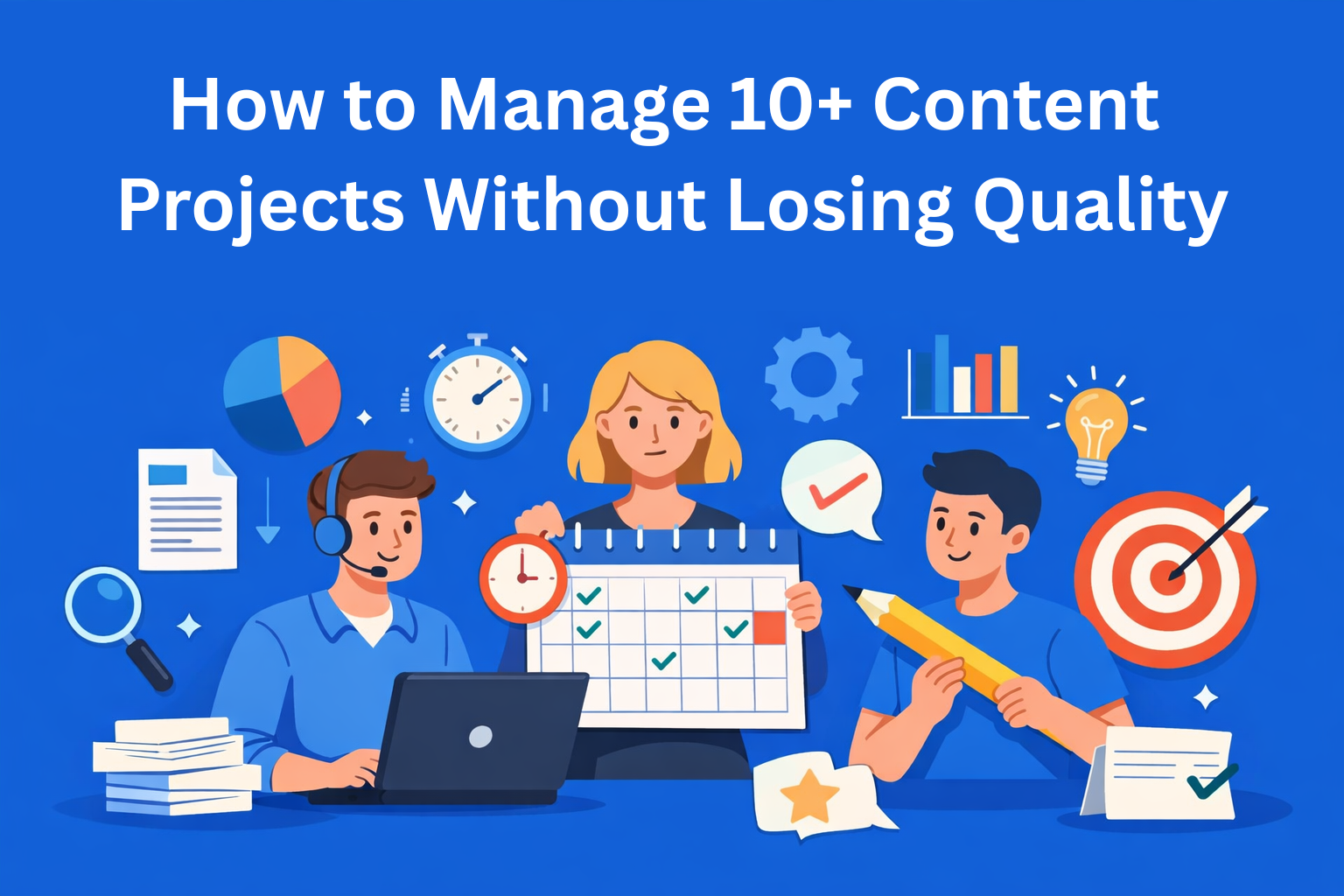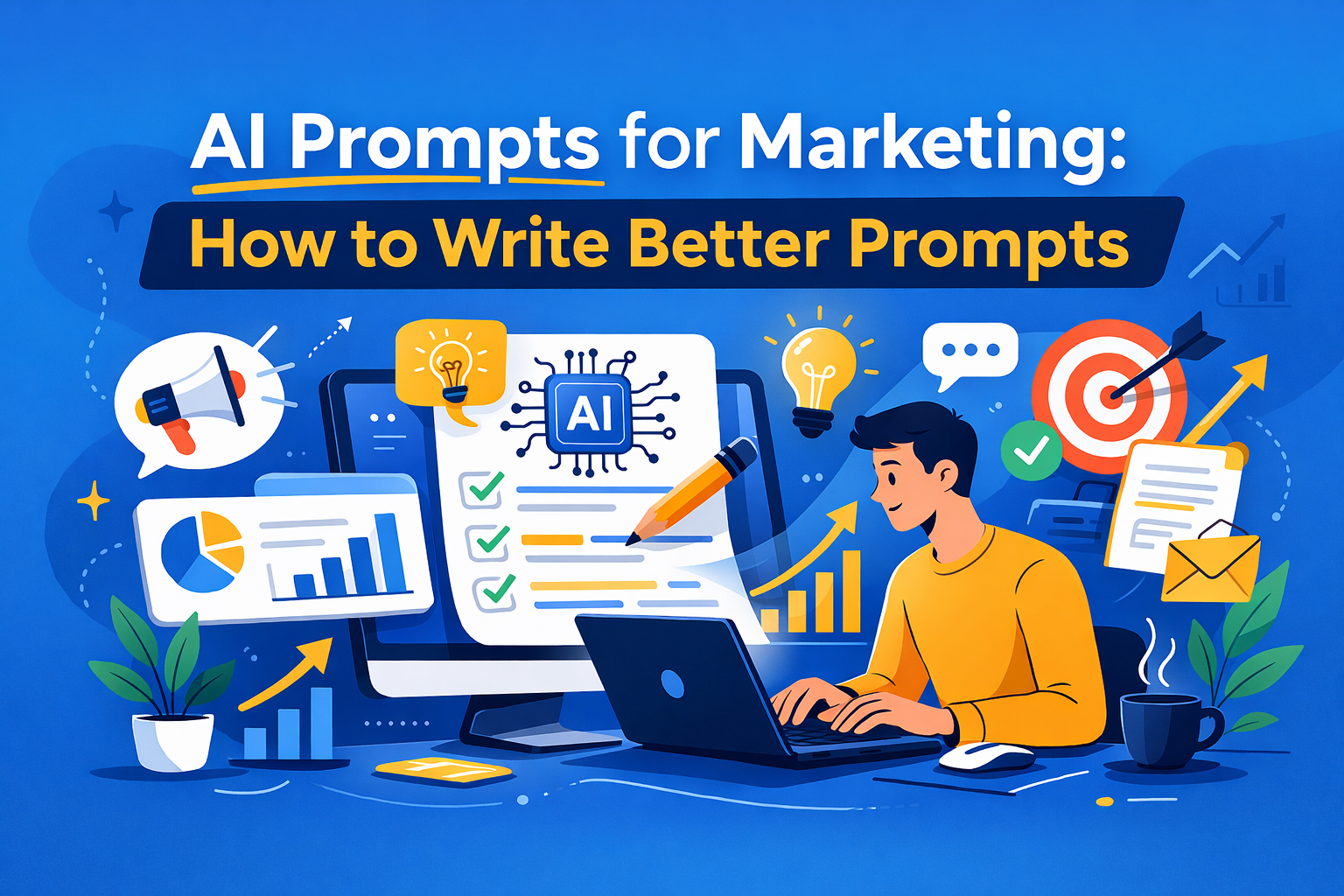Can You Write a Full Blog Without AI? In Two Years, That Might Be Rare
In a world where AI already writes half our blogs, creating a post from scratch is becoming rare. As smarter models emerge, will human writing fade into a hobby? Explore the impact on creativity, skills, and why keeping your authentic voice matters.

When was the last time you heard of someone sitting down at a laptop, opening a blank document, and writing an entire blog from start to finish, completely on their own? Probably not recently. These days, very few people do that because AI exists. It’s a helper that gives you ideas, structure, corrects grammar mistakes, and much more. It’s used almost every day, and because of that, it’s becoming rarer to see someone write a full blog on their own (with some exceptions). If that’s the situation now, what can we expect in a couple of years? Let’s see what might happen in the near future. We can’t predict it perfectly, but based on the current state and facts, we can try to guess what’s ahead.
Key Takeaways
- Writing a full blog without AI is already rare - most teams rely on AI for outlines, drafts, and even SEO work.
- In two years, AI models will be faster, smarter, and deeply integrated - making from-scratch writing more like a creative hobby than a standard practice.
- Over-reliance weakens writing skills and creativity - much like a muscle, they fade if not exercised regularly.
- Some writers and brands still choose human-only creation - to preserve authentic style, originality, and the human touch.
- The real challenge: keep writing without AI sometimes - to maintain skill, protect brand voice, and enjoy the satisfaction of creating from scratch.
The current state - AI has already taken over 50% of the process
Today, most content teams no longer start from a completely blank page. Instead of creating the structure and writing the introduction, conclusion, and everything in between themselves, they simply let AI make the outline, write the first paragraph, the last paragraph, and often the entire draft. People mostly just review the material, edit it, and make small changes. Even SEO optimization is largely done by AI. While this is practical and speeds up the process, it also creates dependency. Once you see that AI can produce a solid, readable text in just a few minutes, it’s very hard to go back to the old, slower way of working.
Evolution in the next 2 years - Faster, better, smarter models
What we’re seeing today is just a small preview of what’s coming. The next generation of AI models will likely be even smoother and more natural in expression, faster to use, and directly connected to the tools you already use every day. At the time I’m writing this blog, the GPT-5 model on ChatGPT has already been released. How many new, even more advanced and “smarter” models do you think will appear in the next two years? Imagine just sitting down, speaking your ideas out loud, and AI turning them into a complete blog in real time, with an introduction, main body, and conclusion. In such a future, writing from scratch would become so rare that it would be more like a hobby or a creative workshop than an everyday practice.
Consequences for creativity and writing skills
The less we write in our own words, the more our writing skills slowly fade. It’s like a muscle - if you don’t use and train it, it weakens over time. The same goes for creativity: when we rely entirely on AI, our imagination and ability to create text on our own start to fade. Another problem is that many texts begin to sound the same because they’re based on similar AI patterns and phrases. If everyone works the same way and uses the same tools, where’s the space for original ideas and personal style? That’s why writing without AI is becoming more important - it’s a way for a brand to keep its recognizable, authentic voice and stand out from the crowd.
Who still writes from scratch and why it matters
There are still teams and individuals who consciously choose not to use AI in their work. These include freelancers who want their style to remain completely recognizable and unique, without the influence of generic AI phrases. They also include premium brands whose customers value an authentic story told in human words. And there are writers who simply enjoy the process (from the blank page to the final period) and don’t want anything to take away that creative feeling. Their texts often have that small, human imperfection that adds charm and warmth, something that machines, no matter how advanced, can hardly replicate convincingly.
Conclusion
Writing a blog from scratch will soon sound like a story from an old movie. AI is not the enemy; it’s a tool. Yes, you’ve probably heard that a hundred times, but it’s true. The question is whether we will continue to use it only as a tool or are we going to allow it to become the main author.






